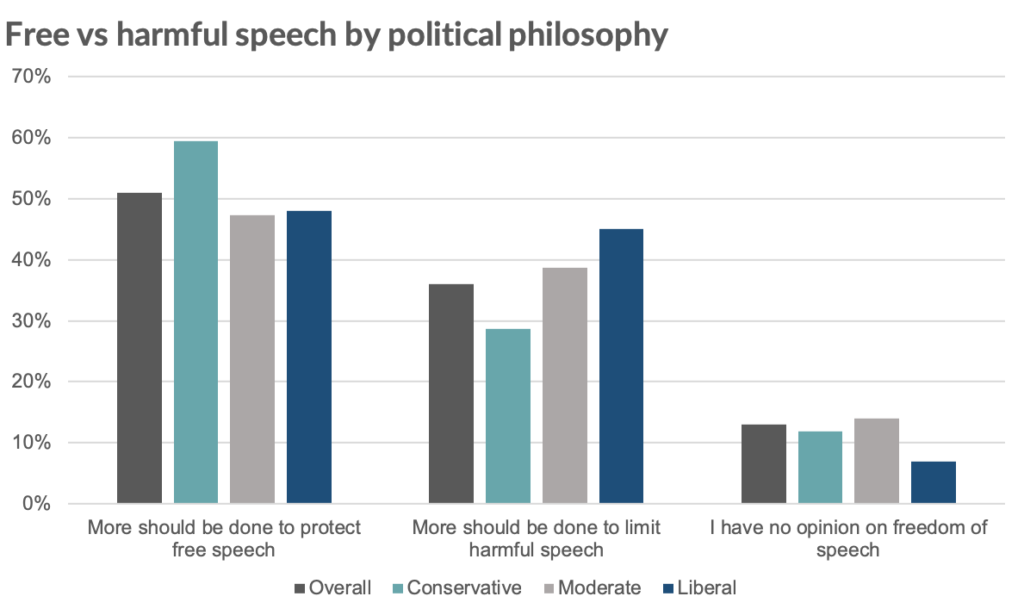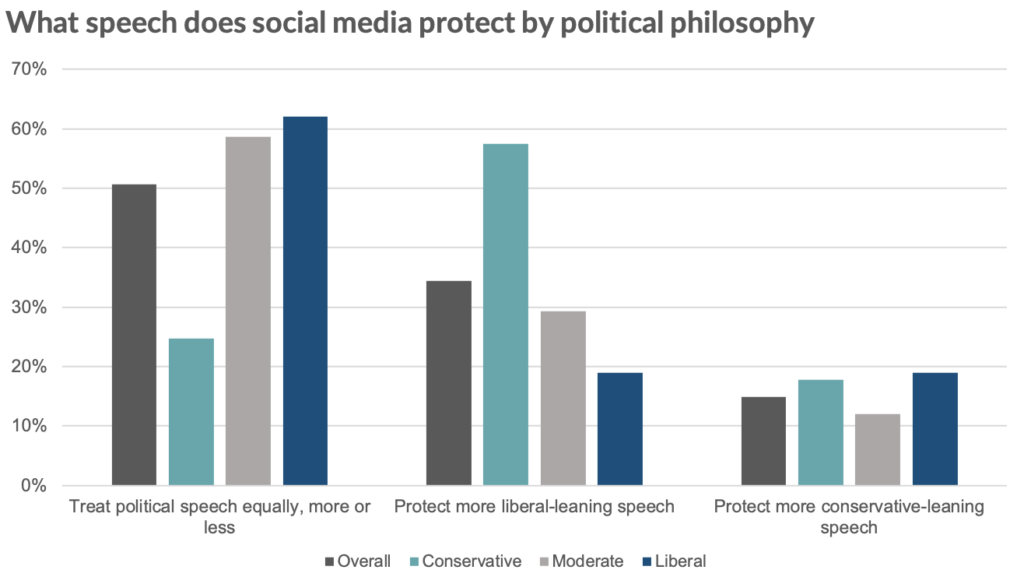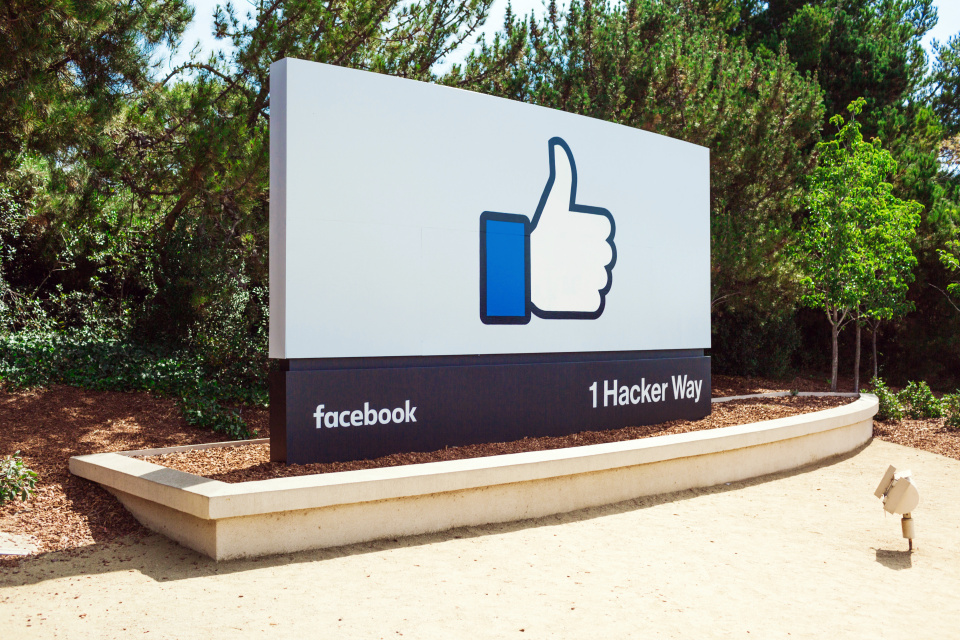Yesterday’s White House social media summit reinvigorated the online free speech debate. The debate, while very public between vocal proponents of free speech and reducing harmful speech, has done little to consider what the actual public wants.
Just two months ago, we surveyed 416 US Internet users about how they view the free speech debate. Do they want social platforms to do more to protect free speech or reduce harmful speech? Do they think platforms lean left or right?
Here’s a reminder of a few takeaways relevant to the summit.
Should we do more to protect free speech or limit harmful speech?
You cannot both protect free speech and limit harmful speech. One must give way to the other and it seems this issue is at the core of the debate about what should and shouldn’t be allowed on social media platforms. We asked Internet users which statement resonated the most:
- More should be done to protect free speech
- More should be done to limit harmful speech
- I have no opinion on free speech
The majority of Internet users believe more should be done to protect free speech (51%), while 36.1% stated that more should be done to limit harmful speech. The remainder claimed no opinion (13%).
The lean toward more being done to protect free speech was true across political philosophy, gender, age, and income, although not always by a majority.
The public’s preference for free speech highlights the difficult position that social media companies are in. Facebook and Twitter have been seemingly deliberate about making decisions on what kinds of speech to ban from their platforms. The problem for the social companies is that any action to limit speech will be viewed unfavorably by those that prefer free speech, while inaction will be decried by a vocal minority that wants more done to limit harmful speech.
Conservatives, moderates, and liberals all prefer protecting free speech to limiting harmful speech
Conservatives were most likely to side with free speech (59.4%) vs doing more to limit harmful speech (28.7%). Moderates sided with free speech 47.3% to 38.7%, as did liberals at 48% vs 45%.
Note: an equal number of respondents to the survey identified themselves as conservative (101) and liberal (100). Moderates totaled 150 users, while 65 users preferred not to answer.

Do social media platforms lean left or right?
To directly address the question of social platforms protecting liberal vs conservative speech, most Internet users believe social media platforms protect political speech equally (50.7%). 34.4% of respondents believed that social media platforms protect more liberal-leaning speech while 14.9% believed they protect more conservative-leaning speech.
People follow party lines in their belief of social media policing
Conservatives were significantly more likely to believe that social media platforms protect liberal-leaning speech (57.4%) than liberals were to believe that platforms protect conservative-leaning speech (19%). Moderates, perhaps the fairest barometer, perceive more of a left-leaning bias (29.3%) than a right-leaning one (12%), although most felt the treatment was equal (58.7%).

Aldous Huxley wrote in Brave New World that, “Extremes meet for the good reason that they were made to meet.” Social media has enabled extremes to gather as tribes and fight persistently with no allowance for the consideration of alternative viewpoints. Now the social media platforms, politicians, users, and the public must deal with the fallout. The public has spoken, although it’s unlikely to be heard over the roar while the others debate.
Disclaimer: We actively write about the themes in which we invest or may invest: virtual reality, augmented reality, artificial intelligence, and robotics. From time to time, we may write about companies that are in our portfolio. As managers of the portfolio, we may earn carried interest, management fees or other compensation from such portfolio. Content on this site including opinions on specific themes in technology, market estimates, and estimates and commentary regarding publicly traded or private companies is not intended for use in making any investment decisions and provided solely for informational purposes. We hold no obligation to update any of our projections and the content on this site should not be relied upon. We express no warranties about any estimates or opinions we make.
